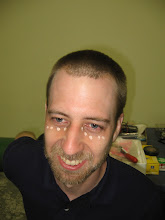Tree of Life really stays with you. I found myself thinking about it a lot today. With selective memory, it's a masterpiece. You just don't think about the interminable sections and remember the greatness. Interestingly though, with its incredible flaws it is still so affecting. I read one person comment that it leaves you with the feeling you get when finishing a book, and that's very true.
Also, many reviewers seemed to have a similar experience to mine. They found it deeply flawed, almost unwatchable and yet cannot deny the importance of the work. It's a film that inspires contemplation and deep emotional experience, getting at the true idea of montage, something far more than the sum of its parts.
I didn't mention, but performances in the movie were fantastic. Penn wasn't really in the movie, but he knows what he's doing. The kids were inspired casting choices. Amazing how strong they were on their own, and how they really evoked both Pitt and Penn as appropriate, and their mother. Jessica Chastain was just right for her part. Pitt has built a large enough body of work now to say that he really is a good actor, and one who isn't afraid of challenging work. He's definitely not a good-looking Hollywood stereotype.
Malick has always been one of the greats for me, but not necessarily a direct inspiration. His films were so poetic, idiosyncratic and elliptical that it was hard to take practical lessons from, at least until I had more experience. But now I find his approach is very much like my own (his being somewhat more impressive on account of him being a bloody genius of course). This is a quote from this articleabout the cinematographer, which contained lots of info about the process:
“It’s incredibly difficult,” he says. “Our shooting ratio is high. We joke that we are like fishermen. We are trying to get little bits from a river that is constantly flowing. Sometimes you catch one or two, and sometimes you don’t. It’s very nerve-wracking. Sometimes it seems like he is almost trying to create a mistake, to take the actors and the camera to a place where they are going to crash. And it’s those little accidents, those little moments, that are in the film and look naturalistic. Those are the truly visually expressive moments.”
There is something incredible that comes from pushing actors beyond a script, finding those moments where as much reality as can be is captured. That's what I'm looking for, this real experience, that of course is a movie, but gives that real connection to the viewers. I saw another quote somewhere about how Malick almost seemed most interested as the cut was called and the actors would be close to breaking character. Totally! Narrowing, pushing down that gap between character and actor, so they are as close to being as possible (and I'm not referring to the Method-not big on definitions and formal processes). Obviously this is a style choice, the representational versus presentational split if you will, but I think this deeper character experience fits better with what I'm trying to achieve.
To capture it on film, particularly that raw, spontaneous aspect, requires time and a willingness to explore on the busy and expensive film set. Another quote from the article:
Creating and capturing those unrehearsed moments was exhausting, yet exhilarating. “Terry does not set up the scene in a theatrical way,” says Lubezki. “He is setting up a scene in order to create little moments that feel real. Our job is to catch them, as though we are shooting a documentary, where you capture things by chance, unplanned. If you came to the set and watched us work, you might think that nobody knows what they’re doing. But it’s those little moments – people call them happy accidents – that end up in the film.”
Yes yes yes!
PS: Patrick Tewson deserves credit for originating the techniques used for special effect shots in Tree of Life. I am not kidding. They may have had IMAX, but the idea is the same.
Subscribe to:
Post Comments (Atom)

No comments:
Post a Comment